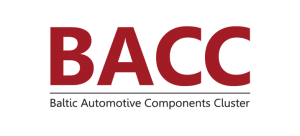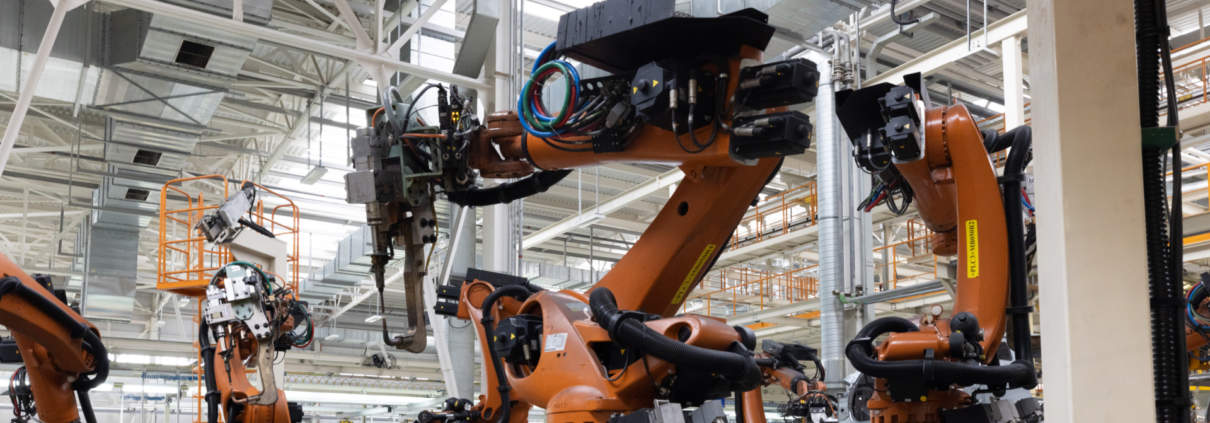The first half of the year is encouraging – the companies operating in the B2B segment are doing well, they have plenty of orders and they forecast growth, although it will likely be slower than in 2022. But there is considerable uncertainty regarding potential results for the second half of the year.
The reason for slower growth, according to Darius Lasionis, is that customers accumulated large inventories of components in their warehouses last year, so they must first use up the inventories they have. In addition, rising interest rates and more expensive loans are reducing companies’ appetite for risk when investing in technological renewal and expansion as well as reducing their willingness to purchase new products. All of this has an effect on corporate decisions and is setting the stage for more modest growth.
“But the overall image of the first half of the year for companies making electronic components, electronic equipment, machinery and devices, metal products and automotive components is largely positive,” says Lasionis.
Nevertheless, he warns that the situation is uncertain and companies should remain flexible, so they could adapt on short notice to a potentially fast-changing situation.
Liutauras Variakojis, Director of the Swedish-owned UAB “SLT Industrial Components” in Biržai, says that the company does not see a downturn; on the contrary, turnover is increasing. The company’s operations include three areas – packaging of sweets, components for medical devices, and automotive components. The company receives most of its orders for automotive components from Volvo.
“When we are constantly growing, a small slowdown in one of the operational areas is not painful. Let’s say that instead of three shifts, we began to work in two shifts, and when we get more orders, we hire more people,” he explains.
That the situation is not worsening is also shown by the fact that SLT Industrial Components is acquiring from “Šiaurės vilkas” the building of the former brewery “Astravas” and will relocate part of its production capacity, the packaging of sweets, to that building.
Will hire several hundred each year
“The forecasts of companies in our cluster are quite positive. Maybe the smaller companies are talking about modest growth or that they will try to maintain the turnover they had last year, but the larger companies are making significant investments into new products and services, and are planning to increase production,” says Giedrius Valuckas, Chairman of the Board of the Baltic Automotive Components Cluster (BACC).
According to him, although the volume of orders may fluctuate, the scales often tip toward an increase. And some factories are being forced to postpone or even turn down some orders, because they lack employees.
For example, the electronic components manufacturer Continental sees its future prospects quite optimistically and intends to further increase the number of employees by several hundred each year until it reaches its target of 1,500.
“I am pleased that we have already put together more than half of our team. We will continue to look for people, mostly for production positions – operators, warehouse workers, technicians. But we always need quality engineers, maintenance engineers and test engineers, and we will certainly continue to hire them, too,” says Shayan Ali, Managing Director of Continental in Lithuania.
His thoughts are echoed by representatives of AQ Wiring Systems, a maker of cable harnesses and electromechanical modules. They say that growth will not stop. The company, with 1,243 employees, is planning to hire an additional 150 this year.
Automotive parts maker UAB “Hella Lithuania” will also hire at least another 50 employees.
“We can take satisfaction not only in a record-breaking year, but also in the increasing motivation of job applicants, and we are getting more and more applicants who already have experience in the automotive industry. This year we also plan to hire engineers and quality specialists in a number of areas,” Maxim Zakletski, Managing Director of Hella Lithuania, is quoted in the announcement.
Companies producing components for cars, agricultural and construction equipment created more than 2,000 new jobs in 2022.
Valuckas believes that Lithuanian companies probably have no lack of orders thanks to the strong foundation they built in prior years, focusing on efficiency, digitisation and attracting talent. Because the European automotive industry’s moods can change quickly, order quantities are smaller and order delays are longer. And disrupted supply chains remain unstable and uncertain.
“However, the increasing number of employees shows that Lithuania’s companies have managed to avoid these problems,” he emphasises.



